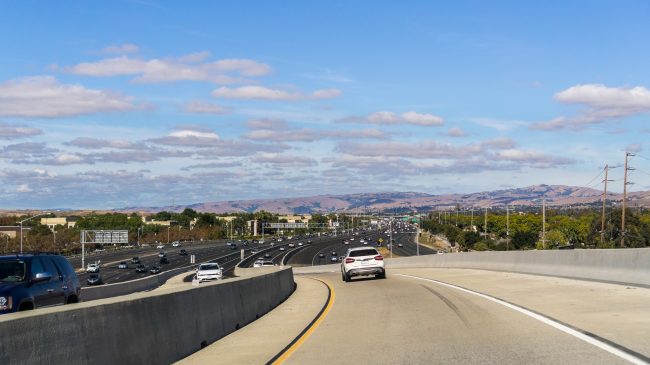Limited-access freeways in most metro areas suffer from significant congestion, which affects both drivers and transit bus riders. Congestion wastes people’s time and increases fuel use and emissions. It can also lead to an increased risk of traffic accidents, as well as longer response times for emergency personnel. Increasingly, departments of transportation (DOTs) and metropolitan planning organizations (MPOs) are turning to managed lanes (MLs) to offer a less-congested alternative to the general purpose lanes.
Managed lanes are a set of lanes in which access is controlled to meet a transportation policy goal. Vehicle restrictions, capacity requirements and pricing are three ways to manage access. Managed lanes encompass bus-only lanes, truck lanes, HOV (high-occupancy vehicle) lanes, HOT (high-occupancy toll) lanes, and express toll lanes. By preventing some lanes from getting overloaded with vehicles, managed lanes offer motorists a more reliable commute option that can also improve public safety in terms of making less-congested routes available for emergency personnel, while also reducing gasoline consumption and emissions. Additionally, toll revenue can cover many of the costs associated with operating and maintaining the lanes.
For decades, the U.S. highway system has eased the transport of people, as well as goods. Over time, highway usage has increased dramatically, to the point where many metro areas find themselves with immense traffic congestion and limited means to improve traffic flow. By providing a largely uncongested alternative using managed lanes, governments can provide motorists with a consistent, reliable means of completing their commutes. When priced variably to reflect lane usage, governments also can help relieve some of the highway funding uncertainties that many states increasingly face. As former Virginia Secretary of Transportation Aubrey Layne stated about the Commonwealth’s decision to embrace tolled managed lanes, “This is not about revenue generation. This is for traffic management…The move is long overdue, and the Express Lanes are a much better use of our assets.”


